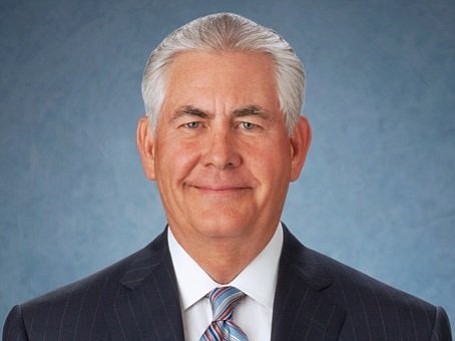Tillerson: Iran Complying With Nuclear Deal, But Still Sponsoring Terrorism
CNN/Stylemagazine.com Newswire | 4/19/2017, 7:35 a.m.

By Euan McKirdy
CNN
(CNN) -- Iran is sticking to the terms of its nuclear deal made with the Obama administration, Secretary of State Rex Tillerson has concluded, but he questions whether sanctions should keep being lifted, given Iran's continued support for terrorism.
The Secretary of State said the Trump administration was reviewing the lifting of sanctions against Iran, arguing that the country remains a sponsor of terrorism. Tillerson came to the conclusion Tuesday during a routine, quarterly report to Congress on Iran's progress in the nuclear deal.
Reapplying sanctions would violate the terms of the groundbreaking deal signed with Iran by former President Barack Obama, Russia, China and EU partners.
In a statement released by the State Department, Tillerson said Iran is making good on its commitment under the agreement, but added that President Donald Trump has ordered a review of the deal, known as the Joint Comprehensive Plan of Action.
In the letter addressed to Congress, Tillerson asserted that "Iran remains a leading state sponsor of terror through many platforms and methods."
"President Donald J. Trump has directed a National Security Council-led interagency review of the Joint Comprehensive Plan of Action that will evaluate whether suspension of sanctions related to Iran pursuant to the JCPOA is vital to the national security interests of the United States," the statement reads.
Under the deal, the State Department must notify Congress every 90 days on Iran's compliance under JCPOA. It is the first such notification under the Trump administration.
Rebukes
Past accusations of terrorism sponsorship have drawn stern responses from Tehran. Earlier this month, Iranian Foreign Ministry spokesman Bahram Qassemi warned US Defense Secretary James Mattis against making "unwarranted and malicious accusations against Iran," according to Iranian media.
The two issues are not linked under the deal -- and if the US were to reinstate sanctions over Iran's alleged ties to terrorism, the US would be in violation of the deal.
Should the US break the terms of the agreement, it would upset the other partners of the deal, which was signed in July 2015 -- and Iran could consider the move a green light to restart its nuclear activity.
Under the terms of the deal, Iran has agreed to reduce its stockpile of low-enriched uranium by 98% and significantly scale back its number of installed centrifuges.
In exchange, the United States and the European Union agreed to lift the sanctions that have crippled the country's economy.
On the campaign trail and since taking office, Trump has repeatedly criticized the deal. One of his signature lines at campaign rallies was "rip it up" -- as a candidate Trump boasted he would trash the agreement, then renegotiate a much better document.
The then-candidate declined to give details about his plans to improve the deal, and Trump has not clarified how he would approach a new agreement since becoming President.
Trump's stance on Iran was tested at the beginning of February, when the nation tested ballistic missiles.
Then-National Security Adviser Michael Flynn said the administration was putting Iran "on notice," but it was unclear what steps it would to take, although the imposition of sanctions was one measure considered.
At the time, officials stressed that a violation of the UN Security Council resolution on Iranian ballistic missile activity would not impact the Iran nuclear deal.
CNN's Elise Labott and Laura Koran contributed to this report



